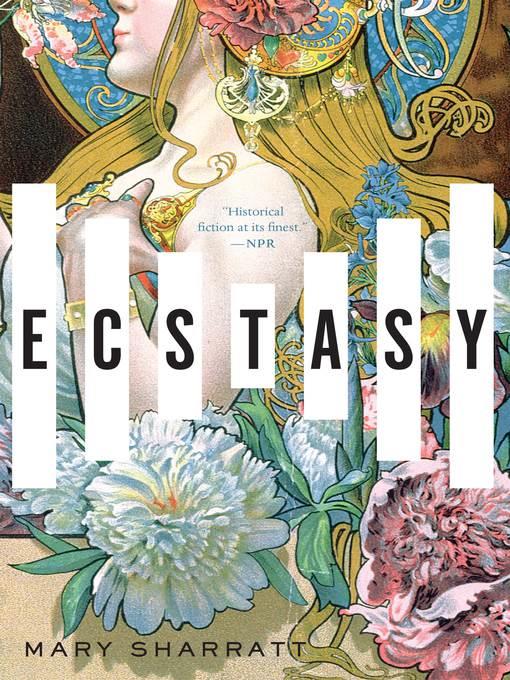
Ecstasy
کتاب های مرتبط
- اطلاعات
- نقد و بررسی
- دیدگاه کاربران
نقد و بررسی

January 1, 2018
Sharratt (Illuminations; The Dark Lady's Mask) writes historical fiction focusing on strong women who have been overlooked by history. Her seventh novel tells the story of Alma Mahler, the much younger wife of composer and conductor Gustav Mahler, seeking to correct the popular view of Alma as a "voracious, man-eating, hysterically self-dramatizing seductress." The author succeeds in making her sympathetic, if rather exhausting. Alma wants to be a composer herself, not just a wife, mother, and helper, but because of her beauty she is seen by the many famous men in her circle as a muse, not an equal. Her relationship with the autocratic and difficult Mahler, who demanded she give up her music to focus on providing a protective shield around his genius, does not flow smoothly. The author has in-depth knowledge of classical music and turn-of-the-20th-century Vienna, but her highly romantic style, which urges on the melodramatic, is geared more toward romance readers than history lovers. VERDICT Recommended for readers who like the peaks and valleys of nonstop drama and much flowery talk about art, awakenings, seduction, and heartbreak.--Elizabeth Safford, Boxford Town Lib., MA
Copyright 2018 Library Journal, LLC Used with permission.

February 1, 2018
The early years of thwarted artist Alma Mahler, a still-controversial woman.Bourgeois bohemian dilettante? Genius foiled by early-20th-century gender bias and bad romantic decisions? These historical appraisals receive equal airing in Sharratt's (The Dark Lady's Mask, 2016, etc.) thought-provoking novel, which takes Alma, nee Schindler, from age 19 to 31. Beautiful and musically gifted, Alma is viewed by her mother and stepfather as ripe for the marriage market: they refuse to allow her to enter a conservatory and only grudgingly agree to her taking counterpoint lessons from composer Alex von Zemlinsky. The two fall in love, appearing to be true soul mates, but her parents won't allow her to marry a Jew. They reverse this position when Alma, at 22, transfers her infatuation to the much older and more successful Jewish composer Gustav Mahler, director of the Viennese Court Opera. Although Mahler's proposal comes with the condition that Alma forego composing, she marries him anyway. Over the years, as Alma gives birth to two daughters, the marriage founders. Alma regrets the loss of her own creative soul, and Mahler grows increasingly obsessed with work, treating her more as hausfrau than muse. Vienna's entrenched anti-Semitism drives the couple to New York, where Mahler escapes European critical ridicule to enjoy acclaim and riches, first as principal conductor of the Metropolitan Opera and then of the newly reorganized New York Philharmonic. Their eldest child's death from diphtheria and Alma's subsequent miscarriages further strain the relationship, particularly since Mahler seems to blame Alma for these tragedies. Crises mount as Alma takes a rest cure for a nervous breakdown and Mahler is diagnosed with a heart condition. At the sanatorium, Alma meets 27-year-old architect Walter Gropius, and once more she confuses her desire for self-realization with other desires. Sharratt is adept at presenting the internal conflicts that dog her protagonist, with the close third-person narration capturing her often skewed perspective. The known biographical facts suggest that Alma could never reconcile her ambitions with her era's constraints on women. In Sharratt's bracing portrayal, though, Alma's limits seem largely self-imposed.Readers will enjoy forming their own opinions on who was really the victim here.
COPYRIGHT(2018) Kirkus Reviews, ALL RIGHTS RESERVED.

February 26, 2018
Both during her life and after, Viennese artist Alma Schindler Mahler Gropius Werfel (1879-1964) received countless love letters; Sharratt’s passionate and occasionally overwrought novel is another, one notable for its focus on Alma’s artistic talent and early feminism as well as her beauty. Sharratt (The Dark Lady’s Mask) specializes in dramatizing the lives of women underestimated or overlooked by history, and, though Alma may not seem to fit that model, Sharratt shows her as trapped by a sexist and hypocritical society in which only men were allowed to be artists or have sexual freedom. In Sharratt’s account, Alma grows from a musical girl awakened by a kiss from the artist Gustav Klimt to the young woman astonished by professions of love from Gustav Mahler, nearly 20 years her senior and perhaps the most famous musician in music-obsessed Vienna. The novel continues on to Alma’s growing resentment at having to tailor her life to Mahler’s demands. Despite occasional overwriting (in response to one of Mahler’s declarations of love, “a light blazed inside her, her heart beating like the wings of a thousand white doves”), this winning historical novel offers an enjoyable portrait of an ambitious woman whose struggles are as relevant today as they were a century ago.

























دیدگاه کاربران